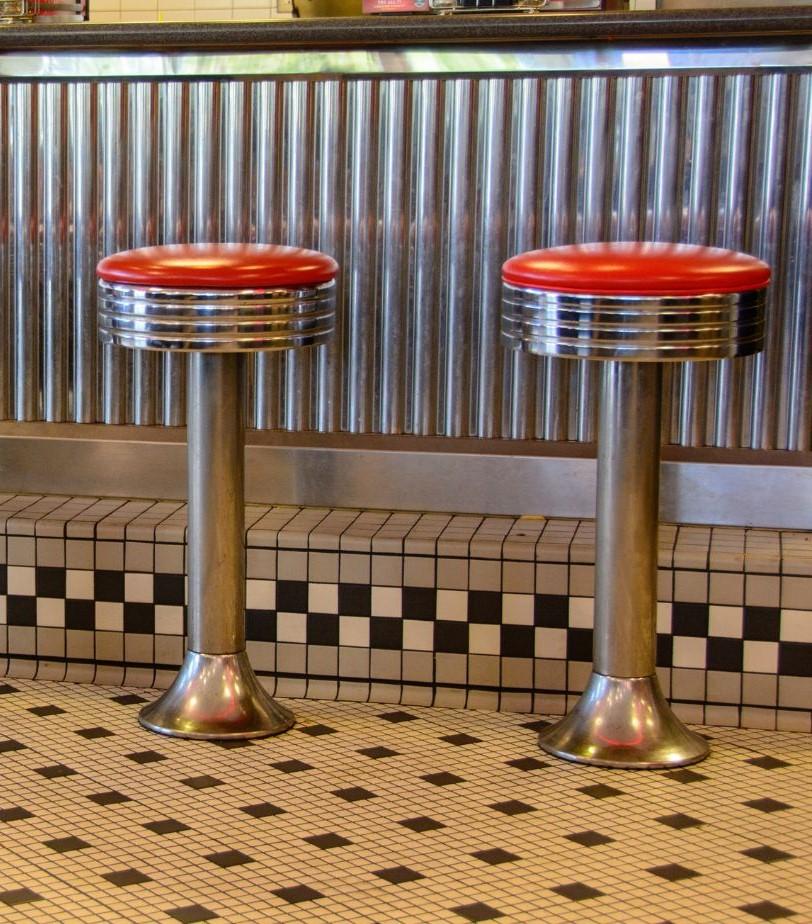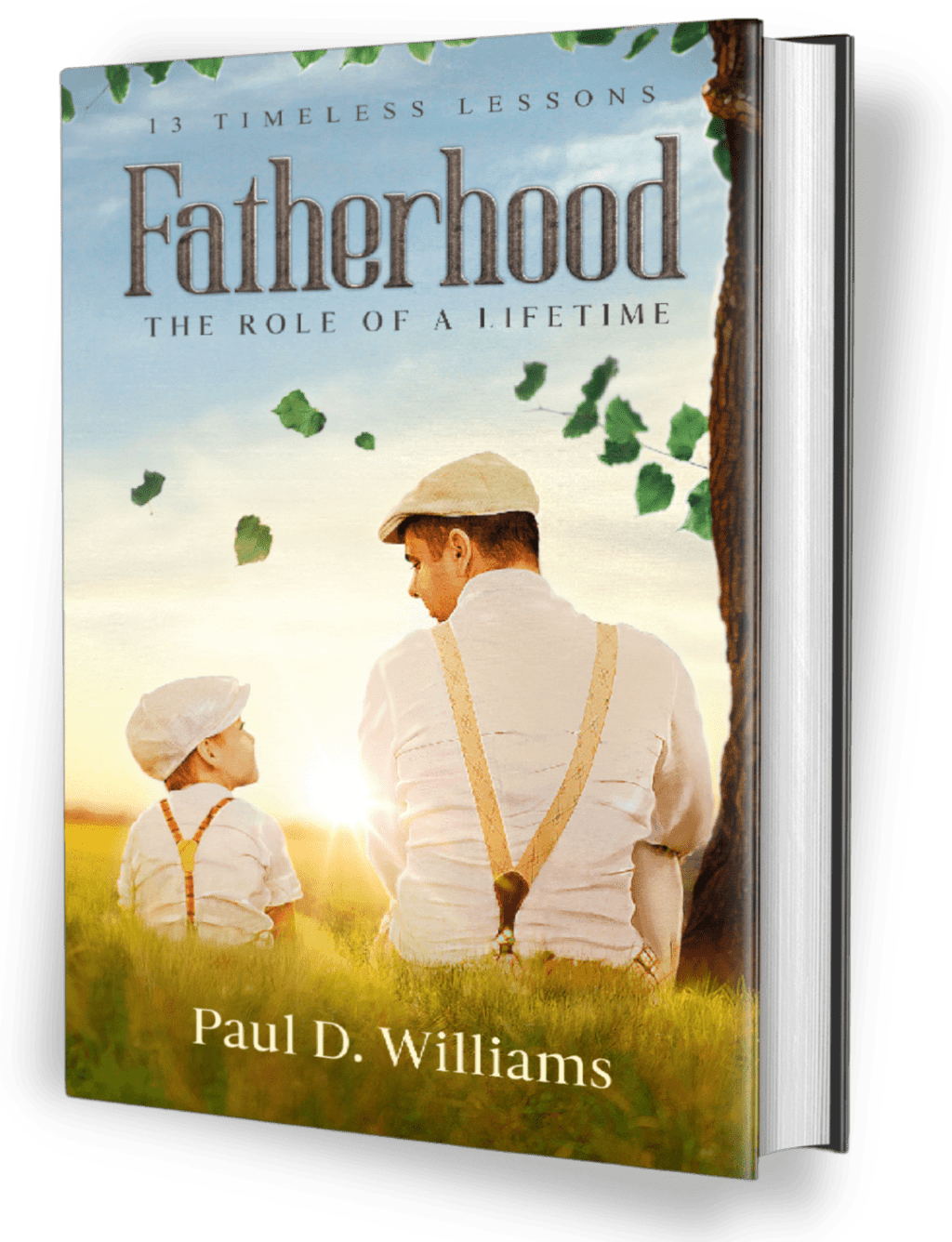I love the fall season.
The brilliant colors of the leaves and the cool crisp air conjure up visions of apples, pumpkin pies, cider donuts, and rides through the canyons.
It also coincides with the beginning of college football games, fall festivals, and the World Series which, in our home, is the official grand opening of the festive holiday season.
My dad also loved fall.
Regardless of his age, when autumn rolled around, I’d still hear my dad describe his longing to go back to a tree-lined college campus, and I’ve come to feel that same yearning.
He started at Utah State University and then spent his last three years at the University of Utah right smack in the middle of the heyday of the 1950s.
He played in the University of Utah’s marching band where their high-stepping entrance on to the field and their fifty-yard line configurations of everything from a cowboy on a horse to its scripted “Utah” won them national acclaim.
At various times, the band would go on the road with the football team and that meant overnight train travel where no one got much sleep. On top of all that, my dad drove a classic 1953 Chevy. No wonder he wanted to go back.
Over the course of my dad’s life, his was a journey of culinary delight, moving like a gypsy from one delicious oasis to another. What a way to travel.
Little did I know that I was embarking on a journey that would become more than a favorite lunch spot.
On one autumn Friday during my own college days, my dad called and asked me to meet him for lunch.
In this little building, I would learn a lesson on worth.
During his stint at the “U”, Dad worked part time as a janitor at Salt Lake City’s old police station on First South and State Street. It was then that he discovered a small diner named Snappy Service.
Originally located on 100 South, owner Morris Daras moved his shrine around the corner in 1968 to a small, obscure building at 57 South State Street.
He’d passed along to me his love of soda fountain counters, cafés, and hamburger spots, and he was ready to introduce me to another one. He earned his stripes in this noble endeavor while sitting at the soda fountain counter in Castle Dale’s Hunter Drug.
Morris, or Morrie as his devoted band of followers called him, had first arrived in Salt Lake City in 1957. Fresh from the military and twenty-two years old, Morrie took what he thought was a temporary job in a temporary city as Snappy Service’s newest fry cook. However, his temporary station soon became permanent.
A few years later he blessed his cheeseburger posterity when he bought the whole operation and became, along with Snappy Service, an institution.

For the next forty years, he served his own brand of masterpieces to the delight of breakfast and lunch crowds.
Snappy Service was no ordinary place. About forty-two feet long by fifteen feet wide with a small storeroom in the back, it seemed placed by Providence in the middle of a city block.
Morrie stood watch over the place behind an L-shaped counter with fourteen bright, stainless-steel stools with red vinyl cushions perched on top.
If you sat on the short side of the L (which was my favorite spot, two seats from the north wall) you had the State Street facing window at your back. The L’s long side was a few steps from the south wall which is where those waiting for an empty stool stood patient and eager for their one-way trip to cheeseburger paradise.
This small shoebox of a building beckoned the hungry traveler with savory aromas wafting through the propped open door in the summer and with steam on the windows in the winter. Either way, in any season, I could never pass it up.
As each customer walked through the glass door, with both hands at rest on the counter, Morrie looked you in the eye and said, “Whad’ya have?”
My order was always the same, a cheeseburger and fries, to which Morrie’s reply was, “The works?”
“The works” meant pickles and onions. My two-word reply was just as succinct. “No onions.”
Once you became a regular, Morrie registered your order in his steel-trapped mind, and before long, his simple query when I walked in the door was, “No onions?”
From there the whole show was performed right in front of us as Morrie did that voodoo that he did so well.
He turned to face the “cooking area”, threw a burger on the grill, tossed a bunch of shoestring fries into the fryer, and turned back toward us to pick up the conversation.
He repeated the ritual for each customer, and with Zen-like precision knew the exact moment it was time to flip the burger, add the cheese, and shovel that beauty onto the buns that were toasting face-down on the grill.
He was a true master. If you wanted a soda, he pulled a bottle out of the ice-cold water cooler, slid the top into the bottle cap opener fastened to the underside of the counter, and popped the cap off before placing it right in front of you.
The food wasn’t the only joy to be had at Snappy Service.
The conversation was always lively.
Morrie typically led the dialogue, and everyone seemed to want his attention and approval.
It didn’t matter whether you wore a pressed business suit or a flannel shirt with a pack of Lucky Strikes in the front pocket—everyone’s opinion got equal billing from Morrie.
And so there we sat, side by side and shoulder to shoulder, truck drivers, lawyers, bankers, and construction workers. We all checked our egos and class differences at the door for the privilege of Morrie’s burgers, chili, and meat pies.
It wasn’t just lunch; it was an experience.
And, without ever knowing it, Morrie showed us all that each man and woman was equal, regardless of class or station.
Our worth wasn’t determined by what we wore, where we lived, or what we did for a living. It was determined by something deeper and less tangible that lay beneath the surface.
It was fascinating to watch.
In our world of imperfection, we’re accustomed to playing the averages.

A 90 percent score on a college exam is deemed to be wildly successful. Baseball players who hit safely three out of every ten times at bat are in great demand and are placed strategically in the prime spots of the batting order. Banks set aside a reserve for loans they expect to default.
On an individual level, we learn that people are human and mistake-prone, and we’re taught to look beyond the failings and weaknesses of others as well as ourselves.
Our minds are so attuned to imperfection that we plan for failures among successes.
Little wonder we find it difficult to get our arms around the notion of the worth of every soul when our mind of averages views 90 percent as a great success.
In Luke 15:4–6 in the parable of the lost sheep, The Lord said,
“What man of you, having an hundred sheep, if he lose one of them, doth not leave the ninety and nine in the wilderness, and go after that which is lost, until he find it? And when he hath found it, he layeth it on his shoulders, rejoicing. And when he cometh home, he calleth together his friends and neighbours, saying unto them, Rejoice with me; for I have found my sheep which was lost.”
The Plan of Salvation, while created for the masses, was truly created for the one.
During a time when I worked for a bank headquartered in San Francisco, California, I would stay in a hotel one block back from our offices in the financial district.
As I walked to and from the bank each day, I often noticed familiar faces among San Francisco’s homeless population.
One woman seemed to stand out in my mind.
Overweight and well past middle age, she attempted to navigate the few city blocks that were her world in an old wheelchair by using her feet to move her forward.
Her few belongings were carefully placed in shopping bags that she tied to the chair’s handles while a large piece of cardboard, folded over many times, was stored at her side.
One evening after an unusually long day, I left our offices after dark and, with my mind still engaged in the world of banking, headed back to my hotel.
I exited our building and began walking down the street when I noticed this same woman, directly ahead of me, crawling out of her wheelchair to lay down against the side of a building for a night’s sleep.
Over her head was her large piece of cardboard, completely unfolded in a lean-to position, propped up against the side of the Walgreens drug store at the corner of Montgomery and Pine Streets.
I watched as she carefully spread her coat out under the cardboard on the hard sidewalk and then, after sitting upon it, wrapped the remainder of it around her to protect her from the chilly San Francisco night.
As I walked along the street toward her, I felt a strong impression to stop. With my mind focused on what others might think, I passed her by.
Hoping the awkward moment had passed, I kept walking. Within seconds, I realized it had not.
Again, the feeling came, this time stronger than before, to go back.

Still uneasy, still uncertain, I decided to circle the block to buy some time to build up courage and figure out what to do.
As I deliberated how I might help her, I came to the most logical conclusion: I would give this poor woman some money.
I turned the final corner, walked gallantly to her spot, knelt, and quickly handed her a few bills of some amount while telling her that I hoped it would help.
Feeling as though I’d done some noble deed, I stood upright and, without waiting for any response from her, walked again down the street.
Once again, I turned the corner onto Montgomery, and once again the same prompting returned, telling me to go back yet again.
Completely stumped yet sensing some urgency based upon the frequency of the impression, I began my second trip around the block.
It was then that I decided to seek the guidance of Him who was so intent on my doing something.
In the next instant, the first part of the answer came.
That still small voice told me that I was to tell her something.
As I rounded Sansome Street back onto Pine Street and began the last leg of my lap, I frantically sought the answer of what I should say.
Then at the last moment, just a few dozen yards from her spot, I heard that same voice say, “Tell her that I love her.”
The message completely threw me.
Tears began to well in my eyes, and the whole experience overwhelmed me.
This ignored woman, known only to the world as a nuisance and a beggar, was not forgotten by God, and He wanted her to know it.
In me, a very ordinary man caught up in his own world, He found a messenger, albeit a reluctant one at first. Much humbler than before, I walked slowly to her and knelt once again. There she lay under her cardboard protection with her old, worn coat wrapped around her.
Startled at my presence, she sat up and pulled her coat tighter.

For the first time I really saw her.
Her clothes were worn, her teeth were black, her hair was matted, and her odor was unpleasant.
While she was only an audience of one, the sacred nature of the message nearly left me speechless. Still, I looked intently at her, smiled warmly, and heard my own voice say, “God wants you to know that He loves you. He wants you to know that you are His daughter, and He has not forgotten you.”
While I could not read her thoughts, I will never forget her silent stare and smile back at me. I knew that she had heard what God wanted her to her.
And I had been reminded of God’s incomprehensible love and the worth of one soul.
Today, the small white building where a plainspoken fry cook taught me about worth is gone, replaced by a new high-rise office building, and Morrie has settled into retirement.
But to the legions who sat shoulder to shoulder on red stools at the old L-shaped counter, the steady stream of conversation, the aroma wafting through the air, and the steam on the windows created a sense of time and place never to be forgotten.
The genuine, accepting man behind the counter gave us more than the best cheeseburgers in the world.
Morrie showed us the worth of a soul.
Read more stories like this and learn valuable lessons from the book Fatherhood: The Role of a Lifetime. Available now on Amazon!

